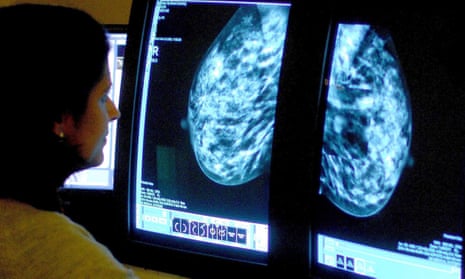Stress and traumatic events such as bereavement and divorce have been ruled out as causes of breast cancer, according to new research.
There is a common belief that stress can cause cancer, but the finding from scientists at the Institute of Cancer Research carries weight because it is from a very large study which began in 2003 and followed what happened to more than 100,000 healthy women over 40 years.
All the women involved were asked how often they had experienced stress and whether they had gone through any of eight different stressful events over the previous five years. A third (34%) said they had been stressed and 74% had experienced at least one stressful event such as a death in the family.
But the 1,783 of the 106,612 women who later developed breast cancer had not suffered significantly more stress or traumatic life events than those who remained cancer-free.
Delyth Morgan, chief executive at Breast Cancer Now which is funding the ongoing study, said: “Many women often question whether their breast cancer could have been triggered by stress or a particularly difficult experience. This groundbreaking study provides the most robust evidence to date that stress itself is unlikely to be a biological cause of the disease.
“As the Breast Cancer Now Generations study continues to uncover more about the underlying causes of the disease, we need to turn this into practical guidance to help women reduce their risk.”
The study coincides with a survey from a second cancer charity which says that women with incurable secondary breast cancer are being failed by the health service because they not being diagnosed and treated promptly. Secondary breast cancer occurs when cancer cells spread from the breast to other parts of the body and it is incurable. Breast Cancer Care says thousands of women are not getting the care they need in time.
Nearly a tenth of the women surveyed said they had been diagnosed because they arrived in a hospital A&E department with debilitating cancer symptoms. Their disease was not picked up in a breast clinic and they were given their diagnosis by emergency care staff, without the support available in a breast cancer unit.
A fifth of those surveyed said they did not see a hospital doctor for eight weeks or more after they first told their GP they thought something was wrong.
“Today’s report paints an extremely worrying picture. Our findings uncover the true extent of inadequate care for people with incurable breast cancer – from feeling they’re not taken seriously when they raise concerns, to facing avoidable delays to a diagnosis, or being told the news in A&E. This is absolutely unacceptable,” said Samia al Qadhi, chief executive of Breast Cancer Care.
“Prompt diagnosis is crucial to help control severe symptoms and allow people with incurable breast cancer to make every day count – as a mum or grandmother, at work, and when making memories with friends. Yet, for so many this is not happening.”
Emma Cairns, 43 from Wokingham, who has one child, was diagnosed with secondary breast cancer in 2011. “I started getting really bad backache about four years after my primary breast cancer,” she told the charity. “Tests at my GP came back OK and I was told to get on with things. But the pain continued to get worse. After going back and forth and even with three months of physiotherapy, it wasn’t any better. I still didn’t get an MRI scan.
“A year and a half later I could barely walk. Finally an MRI was arranged and I was still reassured it was probably nothing. Then, after the scan I was told I had incurable breast cancer. Not only that, I had three collapsed vertebrae and the cancer was in my pelvis and liver. I was distraught.
“I’d been made to feel I was making a fuss about nothing and now I was facing my worst nightmare. Living in excruciating pain with poor mobility had put my life on hold, including being a mum – and an early diagnosis could have got things under control so much quicker.”
